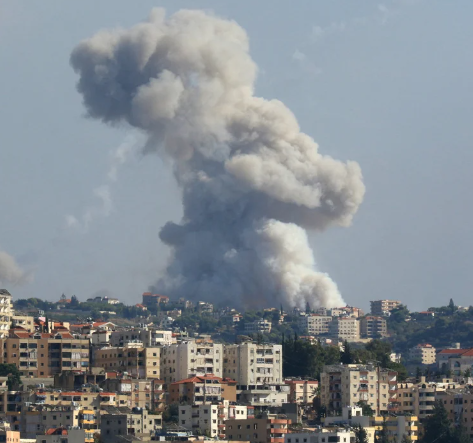Israeli airstrikes have pounded key targets across southern Lebanon, causing widespread destruction and adding to an already devastating death toll. Since the hostilities began on September 23, the confirmed number of casualties has surpassed 1,550, with the majority of victims being civilians trapped in the crossfire.
The ongoing violence has not only led to significant loss of life but has also displaced tens of thousands of residents from border regions, fueling a growing humanitarian crisis. The strikes have targeted a range of locations, including suspected Hezbollah strongholds, military infrastructure, and civilian areas, further escalating the tension between Israel and Hezbollah, the Lebanon-based militant group.
Israeli officials maintain that their military actions are a necessary response to cross-border rocket attacks and other security threats posed by Hezbollah. However, international observers and humanitarian organizations have expressed increasing concern over the disproportionate impact on civilian populations and the destruction of critical infrastructure such as hospitals, schools, and power facilities.
Lebanese officials have condemned the strikes, labeling them as acts of aggression that violate international law. They have called on the United Nations and other international bodies to intervene and broker a ceasefire. Meanwhile, Hezbollah has vowed to continue resisting Israeli military operations, further raising fears of a broader regional conflict.
The situation on the ground has become more dire with each passing day, as food, water, and medical supplies run dangerously low in affected areas. Efforts by international aid organizations to provide relief have been hindered by the intensity of the fighting and the volatile security situation.
As the conflict continues, diplomatic efforts to broker a ceasefire have made little progress. The United Nations Security Council has convened several emergency sessions, but no concrete resolutions have been reached. Meanwhile, regional powers, including Iran and Syria, have voiced support for Hezbollah, complicating the path to peace.
With no end in sight, the death toll is expected to climb further, and the risk of a larger regional war looms ominously. The international community remains divided on how best to respond, leaving the people of Lebanon and Israel to bear the brunt of the violence.








 India
India












